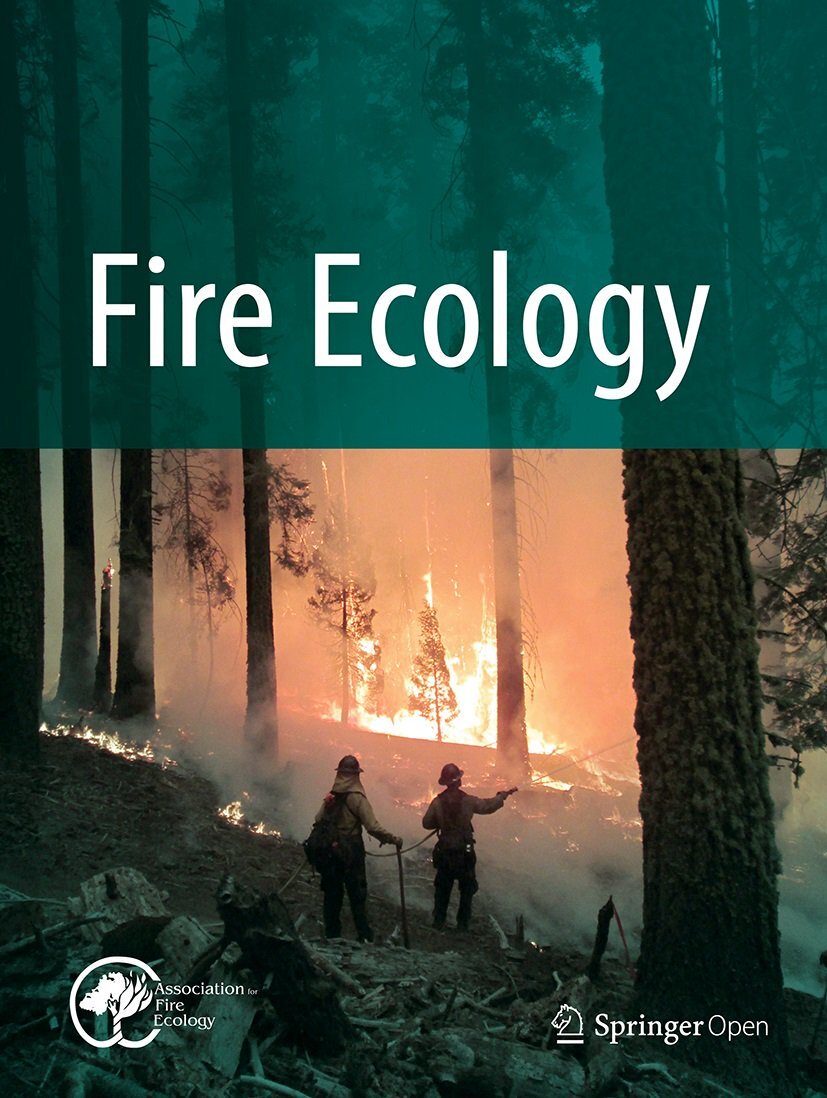Postdoctoral and Crew Leader Opportunities in Forest/Fire Ecology
We anticipate hiring a postdoctoral fellow (PhD) and a crew leader (MS degree or equivalent) to work with us (Dr. Elizabeth Leger - University of Nevada, Reno, and Dr. Stephanie Yelenik - Rocky Mountain Research Station, USFS) on research investigating post-fire regeneration and restoration in eastern Sierra Nevada forests dominated by Jeffrey pine.
The goal of this research is to better understand what biotic and abiotic variables drive regeneration of Jeffrey pine forests after fire, determine how similar factors affect planting success of Jeffrey pine in past planting projects, and to test how the spatial arrangement and density of tree planting affects restoration success. We hope to use this information to better predict where burned forests will regenerate on their own, where planting is likely to be successful, as well as best planting practices. The project is funded by CalFire and is in collaboration with Ecologists from the Humboldt-Toiyabe and Inyo National Forests and Research Ecologists from Rocky Mountain and Pacific Southwest Research Stations of the USFS.
Postdoctoral Fellow position: The postdoctoral fellow will lead many portions of the project and have abundant opportunity to explore additional questions within the larger project. There are existing datasets on Jeffrey pine regeneration that will be ready for immediate analysis, in addition to the new information gathered during this postdoctoral position. The post-doctoral researcher will hired through the Biology Department at UNR and will also be affiliated with the Reno Office of the Forest Service’s Rocky Mountain Research Station (on the UNR campus). They will also be able to engage with the Interdisciplinary Program in Ecology, Evolution and Conservation Biology (EECB) at UNR, which is a highly collaborative and collegial program.
Qualifications: The Postdoctoral Fellow must have completed or be about to complete a PhD. They should be an experienced forest and/or plant ecologist with well-developed abilities in the design and sampling of field studies, scientific writing, and statistical analyses. The successful candidate should have a strong publication record and extensive knowledge of plant ecology and/or forest dynamics. The project necessitates comfort working in adverse field conditions in post-fire areas, inclement weather, and steep slopes, and there may be stints of camping to complete remote fieldwork.
Salary: We follow UNR’s post-doctoral salary schedule, posted here, with starting salary depending on experience: https://www.unr.edu/hr/compensation-evaluation/compensation/postdoc
Desired Start Date: Some flexibility, and ideally before March 1, 2024.
Location: Ideally, Reno, NV. Some flexibility, requiring the ability to conduct fieldwork in the eastern Sierra Nevada
Crew Leader position: The crew leader will help organize various facets of the project and deal with logistics of fieldwork including personnel, equipment, field schedules, data management, and field site exploration. They will be hired through the Biology Department at UNR and will also be affiliated with the Reno Office of the Forest Service’s Rocky Mountain Research Station (on the UNR campus).
Qualifications: The crew leader should have an MS or completed some graduate level coursework. They must have a background in field ecology and/or forestry, ArcGIS skills to help locate and navigate to field sites, experience with plant identification, as well as some experience in design and sampling of field studies, scientific writing, and statistical analyses. The project necessitates comfort working in adverse field conditions in post-fire areas, inclement weather, and steep slopes, and there may be stints of camping to complete remote fieldwork.
Salary: GS7-9 level, depending on qualifications.
Desired Start Date: Some flexibility, and ideally before March 1, 2024.
Location: Ideally, Reno, NV. Some flexibility, requiring the ability to conduct fieldwork in the eastern Sierra Nevada
Position Duration for both positions: This project has three years of funding. The initial appointment will be for one year, with the option for additional years based on performance and productivity.
Applications. To express interest in either of these positions, please send a detailed letter of interest, CV and the names and contact information of at least three referees to Beth Leger (lelizabeth@unr.edu) and Stephanie Yelenik (stephanie.yelenik@usda.gov). Please group these documents into a single pdf file. Review of submissions will begin immediately, but the final date to send us a letter of interest is December 15, 2023. Applicants will ultimately apply through the UNR HR portals, once funding is in place.
About UNR. Founded in 1874, the University of Nevada, Reno is a land-grant public institution with ~20,000 students. The university is classified as an R1 institution by Carnegie, in recognition of its “very high research activity.”
About Reno. Reno is located on the western edge of the Great Basin and the eastern slope of Sierra Nevada Mountains. With its elevation ranging from 4,400 to 6,000 feet, the city has a population size of ~270,000 and is home to a diverse cultural and artistic community. Reno offers exceptional access to outdoor activities including skiing, climbing, hiking, and mountain biking. It is located ~45 minutes from Lake Tahoe, 3 hours from Yosemite National Park, and 3.5 hours from San Francisco. Outside Magazine included Reno in its list of 12 Best Places to Live in the U.S. (2019) and 15 Happiest Places to Live in the U.S. (2023).

